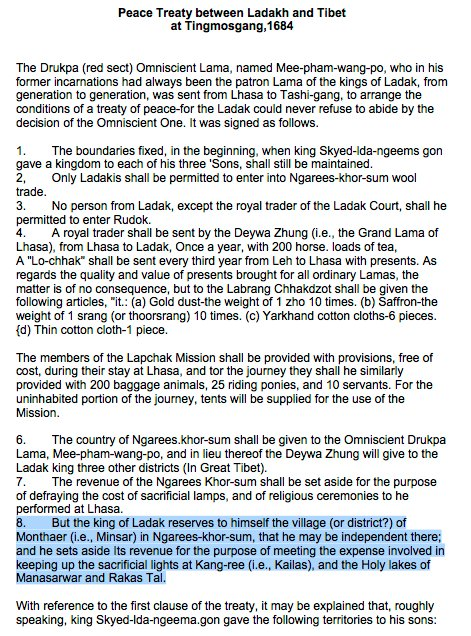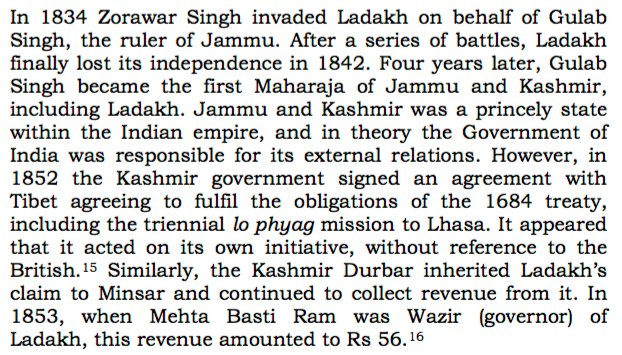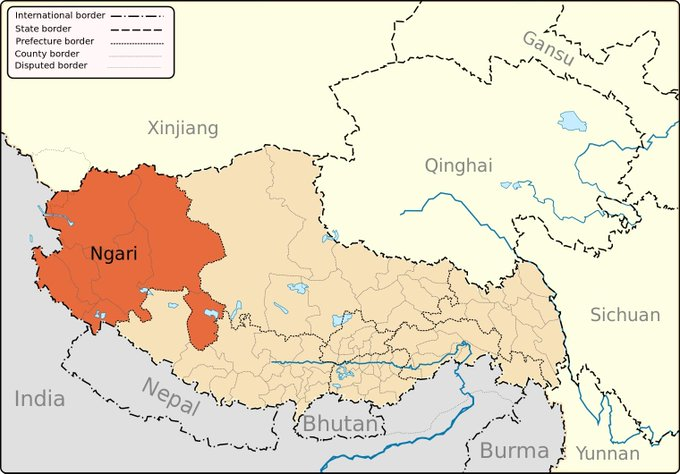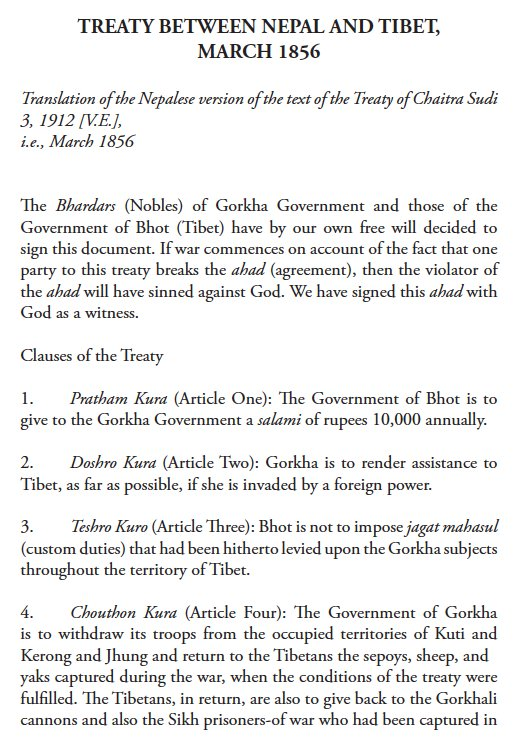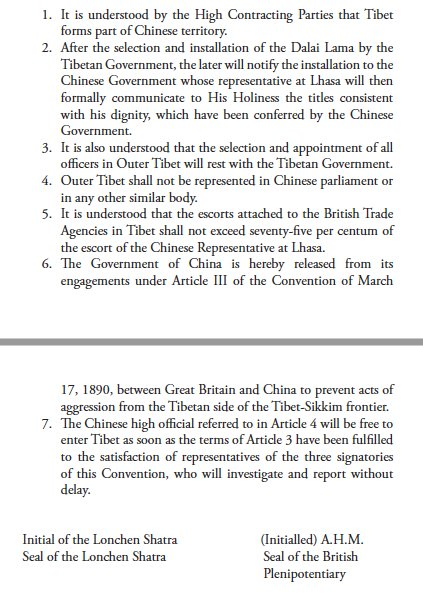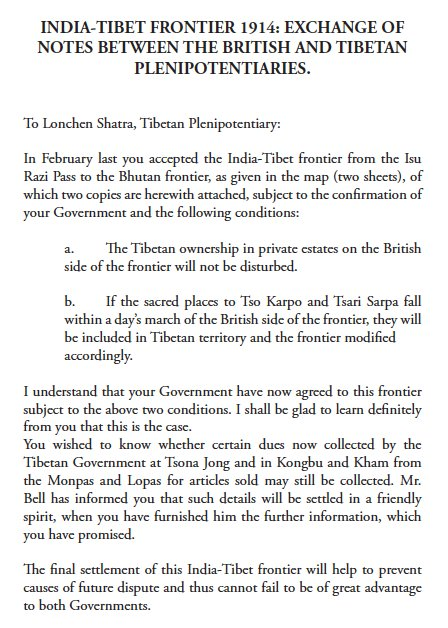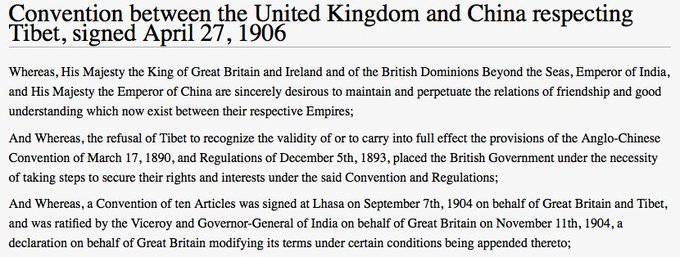Whatever the Chinese say, one can actually argue that Tibet is a part of India and not China. There are two themes to this. Let me take them one by one.
1. The case of Minsar
2. Treaty of Thapathali https://www.indiatvnews.com/news/india/china-includes-arunachal-pradesh-in-its-updated-map-609799">https://www.indiatvnews.com/news/indi...
1. The case of Minsar
2. Treaty of Thapathali https://www.indiatvnews.com/news/india/china-includes-arunachal-pradesh-in-its-updated-map-609799">https://www.indiatvnews.com/news/indi...
It is well known that after the collapse of Tibetan Empire, three successor states formed out of the ruling dynasty - Ladakh, Zanskar and Guge. As time went by, Zanskar became a part of Ladakh and the whole Tibetan theatre was a fight between Ladakh and Guge.
After a long and bitter war, Ladakh conquered Guge in 1630. It is important to note that nothing worth mentioning as a kingdom existed in Tibet till almost 1650 when Tibet started flexing it& #39;s muscles under the Fifth Dalai Lama.
After Ladakh and Bhutan joined forces in a dispute against Lhasa, Tibetan forces advanced on Ladakh and Guge fell in 1680 and the same is confirmed in the 1684 Treaty between Tibet and Ladakh. But, Manas Sarovar is more important than any war or country.
Tibet granted Ladakh a village near Manas Sarovar so that it can manage it& #39;s religious affairs. In fact, India de jure still owns the village - Jammu officials visited the village even into 1950s and Nehru Govt hasn& #39;t spoken about that village. Now coming to the important part.
Why did Zorawar Singh invade Tibet and why did the subdued king of Ladakh actively join him? What if I say Zorawar Singh didn& #39;t invade Tibet but he rejected the 1684 treaty and decided to undo it by taking Guge? That is exactly what happened. Notice the reference to 1684 Treaty.
But. That& #39;s not the end of the story. Notice the titles of Maharaja Hari Singh in the Treaty of Accession. The Kingdom of Jammu and Kashmir never gave up claims to Guge.
Now, coming to the other part of the discussion - Treaty of Thapathali. In 1855, a vassal of British India, Nepal invaded Tibet. It was a tough war for them going by the fact is Nepal is a small state and it is already devastated in the Gurkha War.
Finally, a peace treaty is signed, accepting Tibet& #39;s vassalage to Nepal. It& #39;s a different thing altogether that this war was the reason for the rise of Jang Bahadur Rana and the reason he sold Nepalese Army which marched to support Nana Sahib to the British for £20,000.
So, why is this important? This is the last treaty which establishes the status of Tibet and that too, as an Indian vassal.
Now, look at the subsequent treaties
1890 Anglo-Tibetan Treaty. Outer Tibet is not under Chinese Rule. China doesn& #39;t accept it.
Now, look at the subsequent treaties
1890 Anglo-Tibetan Treaty. Outer Tibet is not under Chinese Rule. China doesn& #39;t accept it.
1914 - Arunachal Pradesh is declared as a part of India. As expected, China doesn& #39;t recognise this treaty.
Now, an interesting part. Tibet rejected the 1890 treaty and signed another treaty in it& #39;s individual capacity and not as a Chinese vassal.
So, as it stands, till the time of Chinese Invasion of Tibet, on one side, India inherited the title of Tibbet Adi Deshadhipati from J&K, and the terms of Treaty of Thapathali from the British through Nepal. And what do these two say over the Chinese claims over Tibet?

 Read on Twitter
Read on Twitter